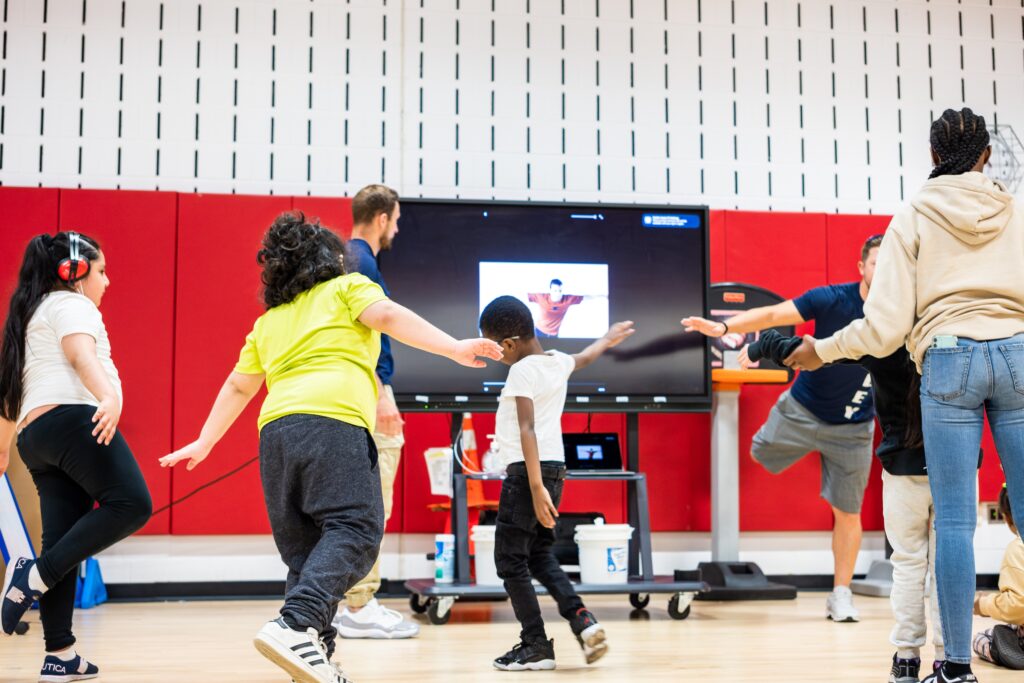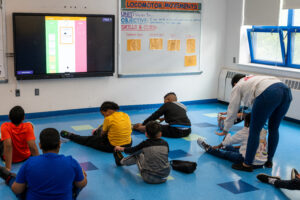
The connection between physical exercise and social skills, particularly for individuals with autism, has gained significant attention in recent years. A growing body of research suggests that exercise not only enhances physical fitness but also plays a crucial role in improving social interactions, reducing behavioral issues, and enhancing overall well-being. In this blog post, we’ll explore the positive effects of exercise on social skills, supported by recent studies.
Recent studies highlight the substantial benefits of exercise interventions for individuals with autism. According to a study published in Frontiers in Psychiatry (Toscano et al., 2022),exercise interventions significantly decreased social interaction problems, attention deficits, emotional reactivity, stereotypical verbal and motor behaviors, and sleep disturbances in individuals with Autism Spectrum Disorder (ASD). These improvements are crucial for enhancing the quality of life and social engagement in autistic individuals.
“Exercise interventions significantly decreased social interaction problems.”

A study published in the Journal of Autism and Developmental Disorders (Haghighi et al., 2022) examined the effects of a Cognitive Physical Training (CPT) program on autistic children. The results showed significant improvements in social skills, particularly in reducing stereotypic behavior and enhancing communication. Additionally, the study reported improvements in physical fitness indicators such as handgrip strength, upper and lower body power, flexibility, balance, and agility. These findings underscore the dual benefits of physical and social development through exercise.
“The results showed significant improvements in social skills, particularly in reducing stereotypic behavior and enhancing communication.”
Physical activity has been shown to improve various aspects of physical fitness, cognition, and social skills in individuals with autism. A comprehensive review published in Review Journal of Autism and Developmental Disorders (Hynes & Block, 2022) found that all studies reviewed reported improvements in endurance, strength, balance, cognition, language, eye contact, and engagement with others. The positive behavioral changes, including reduced repetitive behaviors and enhanced social engagement, further highlight the importance of regular physical activity.
“Physical activity has been shown to improve various aspects of physical fitness, cognition, and social skills in individuals with autism. “
In the Autism Fitness Handbook, Coach Dave shares stories of the impact exercise has had on his many clients.

An interesting study published in the Journal of Autism and Developmental Disorders (Sansi et al., 2020) explored the impact of an Inclusive Physical Activity (IPA) program. The study found that the IPA program increased motor and social skills in students with ASD and improved the motor skills of typically developing (TD) students. Furthermore, the program positively influenced the attitudes of TD students toward their peers with ASD, fostering a more inclusive and supportive environment.
The evidence is clear: exercise has a profound positive impact on social skills in individuals with autism. Regular physical activity not only reduces repetitive and restrictive behaviors but also improves attention, sleep disturbances, and potentially disordered eating patterns. These improvements are vital for enhancing the quality of life and social integration for individuals with ASD.
Incorporating regular exercise into the daily routine of individuals with autism can lead to significant advancements in both physical and social well-being, making it an essential component of comprehensive care and support strategies.
Let’s Get Moving Together
Schedule a demo with one of our team members and start making a meaningful difference in the lives of the people you serve today.
We use cookies to enhance your experience on our website. By continuing to use our site, you agree to our use of cookies.